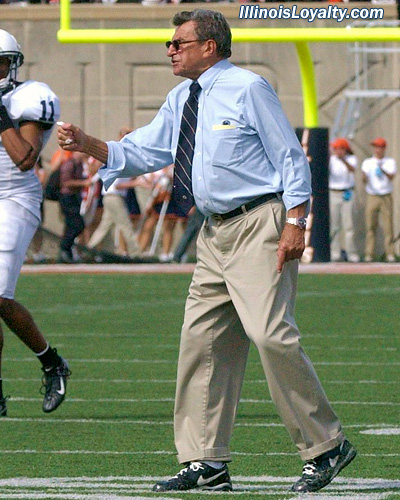


In 1998, he was investigated for child sexual abuse but no charges were filed.


Sandusky retired from the organization in 2010. In 1977, he founded The Second Mile in State College, Pennsylvania, a charity formed to help disadvantaged youth. For the last 23 of those years, Sandusky was the team's defensive coordinator. Jerry Sandusky was an assistant coach for the Penn State Nittany Lions football team from 1969 to 1999. Spanier's misdemeanor conviction was subsequently overturned on appeal. Spanier was sentenced to four to twelve months in jail, a $7,500 fine, and two years of probation. In June 2017, all three were sentenced to jail terms, fines, and probation for the misdemeanors. All conspiracy charges against Curley and Schultz were dropped, and Spanier was acquitted of conspiracy, the charges central to Louis Freeh's allegation of a cover-up. On March 25, 2017, Curley, Schultz, and Spanier pleaded or were found guilty of misdemeanor charges of child endangerment. As part of a settlement, the NCAA restored the 111 wins to Paterno's record on January 16, 2015. In November 2014, Corman released emails showing "regular and substantive" contact between Freeh's investigators and the NCAA, suggesting that Freeh's conclusions were orchestrated. In January 2013, state senator Jake Corman and state treasurer Rob McCord sued the NCAA, seeking to overturn the Penn State sanctions on the basis that Freeh had been actively collaborating with the organization and that due process had not been followed. The Paterno family retained former Attorney General Richard Thornburgh to conduct a review of the Freeh report, which concluded that the report constituted a "rush to injustice" that could not be relied upon and that Freeh's evidence fell "far short" of showing that Joe Paterno attempted to conceal the scandal, but rather that "the contrary is true". NCAA President Mark Emmert stated that the sanctions were levied "not to be just punitive, but to make sure the university establishes an athletic culture and daily mindset in which football will never again be placed ahead of educating, nurturing and protecting young people." The Big Ten Conference subsequently imposed an additional $13 million fine. These sanctions were considered to be among the most severe ever imposed on an NCAA member school. As a result of the scandal, the National Collegiate Athletic Association (NCAA) imposed sanctions on the Penn State football program: a $60 million fine, a four-year postseason ban, scholarship reductions, and a vacation of all victories from 1998 to 2011. The Board of Trustees terminated the contracts of Paterno and Curley. The Penn State Board of Trustees commissioned an independent investigation by former FBI Director Louis Freeh, whose report stated that Penn State's longtime head football coach Joe Paterno, along with Spanier, Curley and Schultz, had known about allegations of child abuse by Sandusky as early as 1998, had shown "total and consistent disregard.for the safety and welfare of Sandusky's child victims", and "empowered" Sandusky to continue his acts of abuse by failing to disclose them.:14 Shortly after the scandal broke, Spanier resigned. Additionally, three Penn State officials – school president Graham Spanier, vice president Gary Schultz and athletic director Tim Curley – were charged with perjury, obstruction of justice, failure to report suspected child abuse, and related charges. Sandusky was ultimately convicted on 45 counts of child sexual abuse on June 22, 2012, and was sentenced to a minimum of 30 years and a maximum of 60 years in prison. The scandal began to emerge publicly in March 2011 and broke in early November 2011 when Sandusky was indicted on 52 counts of child molestation, stemming from incidents that occurred between 19. The Penn State child sex abuse scandal concerned allegations and subsequent convictions of child sexual abuse committed by Jerry Sandusky, an assistant coach for the Penn State Nittany Lions football team, over a period of at least fifteen years.


 0 kommentar(er)
0 kommentar(er)
